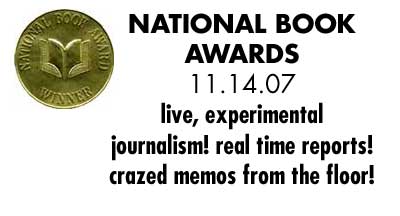Variety; “The canaries in TV’s creative coal mine are latenight hosts such as David Letterman and Jay Leno, whose monologues and sketches are dependent on union writers. If history is any guide, both shows will almost instantly go dark, as would ‘Saturday Night Live.’ Comedy Central’s latenight stalwarts ‘The Daily Show With Jon Stewart’ and ‘The Colbert Report’ would also likely switch to repeats in the immediate aftermath of a strike.”
It’s 1988 all over again. And there’s a part of me quite curious about how long it will go on, how patient audiences will be for reruns, and whether the late-night television titans might at long last be revealed as mimetic melonheads desperately reliant they are upon their writers.
The difference this time is that this WGA strike is going down in the Internet age, with the largest possible depository of non-union talent showing off their wares at YouTube.
Sure, 95% of everything is crap. But what if the networks and the WGA can’t come to an agreement? Let’s say that the strike ends up going on for longer than six months, which would surely make the promised spate of sixteen uninterrupted episodes of Lost impossible and piss off the fans. That’s certainly sticking it to the man. But is it possible that a spate of enterprising nonunion talent, shut out by the WGA system, might drastically court the networks during this strike? And if they do not approach the networks or the networks do not approach them in scab-like manner, then perhaps television audiences, desperately searching for new material, might be drawn to either the Internet or reading books to find new stories.
In other word, this WGA strike couldn’t have happened at a better time. As the relationship between old media and new media remains transcendent and ever-evolving, I’m wondering if we won’t see some serious shock waves if the WGA strike isn’t resolved within two months. Unless, of course, the WGA strike proves the inevitable: that current television audiences are quite happy to get their reality TV fix. Which would be considerably ironic, given that this was precisely what the WGA has gone to the mat for.
